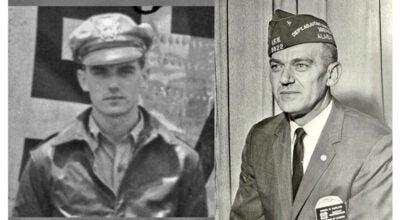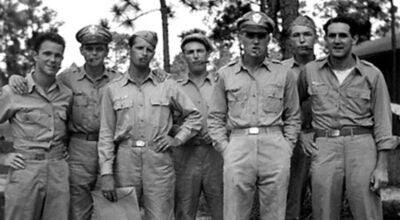Jobs’ road less traveled changed our world
Published 12:52 am Saturday, August 27, 2011
A college dropout who changed the world commanded the front page of every major newspaper in the Unites States this past week when he announced he was stepping down as CEO of Apple.
Steve Jobs, a co-founder of the company he started in his parents’ garage, and from which he was once fired, didn’t cite his health as the reason for his departure. But followers of the innovative computer company believes Jobs’ departure is related to his battle with pancreatic cancer. He’s been on medical leave since January.
It’s hard to imagine the world without the innovations brought by Jobs’ creativity. In a 2005 graduation speech at Stanford University, Jobs told three stories with insight into that creativity.
First, he talked about dropping out of college. Six months in, he realized that his parents, who adopted him at birth, were spending their life savings on his schooling, and he didn’t know what he wanted to do.
After “dropping out,” he spent 18 months “dropping in” to classes that interested him rather than enrolling in classes that were required. Among them was a calligraphy class.
“Much of what I stumbled in to, by following my curiosity and intuition, turned out to be priceless later on,” he said.
In the calligraphy class, he learned about fonts, space between letter combinations, and the beauty of letters.
“None of this had even a hope of a practical application in my life,” he said. “But 10 years later, when we were designing the first Mac, it all came back to me. It was the first computer with beautiful typography.”
If he’d never wandered off into classes that interested him, the Mac wouldn’t have had creative and beautiful fonts.
“And since Windows just copied the Mac, it’s likely that no personal computer would have them,” he joked.
The path made no sense at the time, he said, but looking back, he’s able to connect the dots. If you follow your heart, it will make all of the difference.
Second story. As a co-founder of Apple, he’d seen the company grow to a $2 billion entity by the time he was 30. The founders hired someone to run the company. When he and Jobs disagreed about Apple’s future, the board sided with the CEO and Jobs was very publicly out of the company he started.
“It was devastating,” he said. “Something slowly began to dawn on me. I still loved what I did.”
He decided to start over.
“Getting fired from Apple was the best thing that ever happened to me,” he said. “The heaviness of being successful was replaced with the lightness of being a beginner again.”
That beginning freed him to be more creative than ever before, he said. He started a company called Next, and then he launched Pixar, which produced the first computer-animated feature film, “Toy Story.” Later, in a remarkable turn of events, Apple bought Next, and Jobs was back home.
“None of this would have happened if I hadn’t been fired from Apple. I loved what I did. You’ve got to find what you love. The only way to be truly satisfied is to do what you believe is great work. The only way to do great work is to do what you love. Keep looking and don’t settle.”
As a teen, Jobs said, he once read the quote, “If you live each day as if it is your last, some day you’ll most certainly be right.”
Afterward, he tried to look in the mirror every day, thinking, “If today were the last day of my life, would I want to do what I’m doing today.”
If the answer was “no” too many days in a row, he sought to change.
Being diagnosed with cancer made the thought even more real to him, he said.
“No one wants to die. Even people who want to go to heaven don’t want to die to get there. And yet, death is the destination we all share. No one has ever escaped it.
“Death is life’s change agent,” he said. “It clears out old to make room for new. Your time is limited, so don’t waste it living someone else’s life. Don’t let the noise of others’ opinions drown out your own inner voice. And most important, have the courage to follow your heart and intuition. They somehow already know what you truly want to become. Everything else is secondary.”
More COLUMN -- FEATURE SPOT





